In conversation with Sara Urbaez
Edited for length and clarity
Edited for length and clarity
Ysa Perez: Portfolio Overview
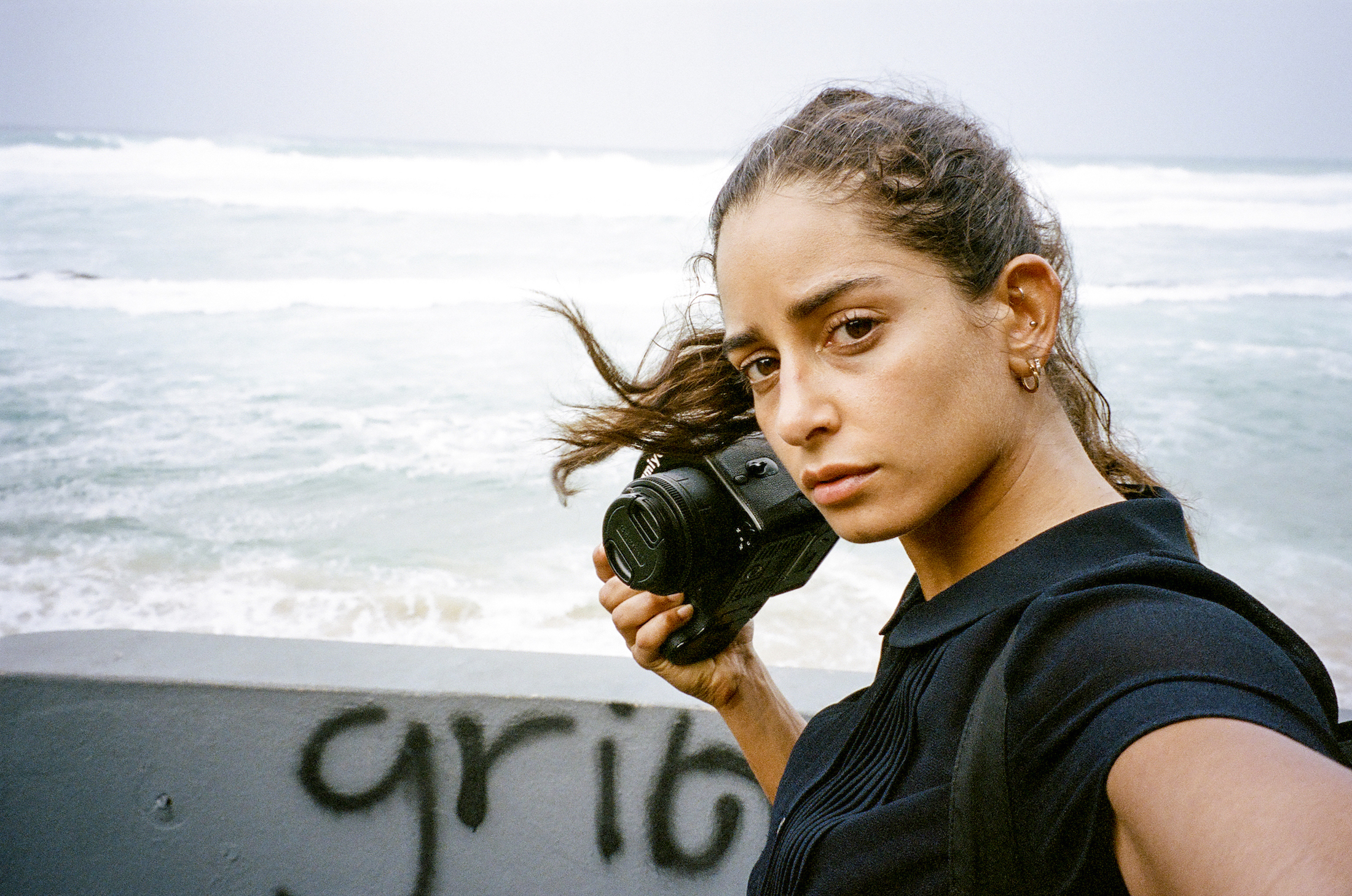
My first question is where are you from? And where are you currently situated?
I was born in Puerto Rico and I moved to Rochester, New York, with my mom when I was four. I was raised in Rochester, but at the moment, I'm in Bushwick, New York.
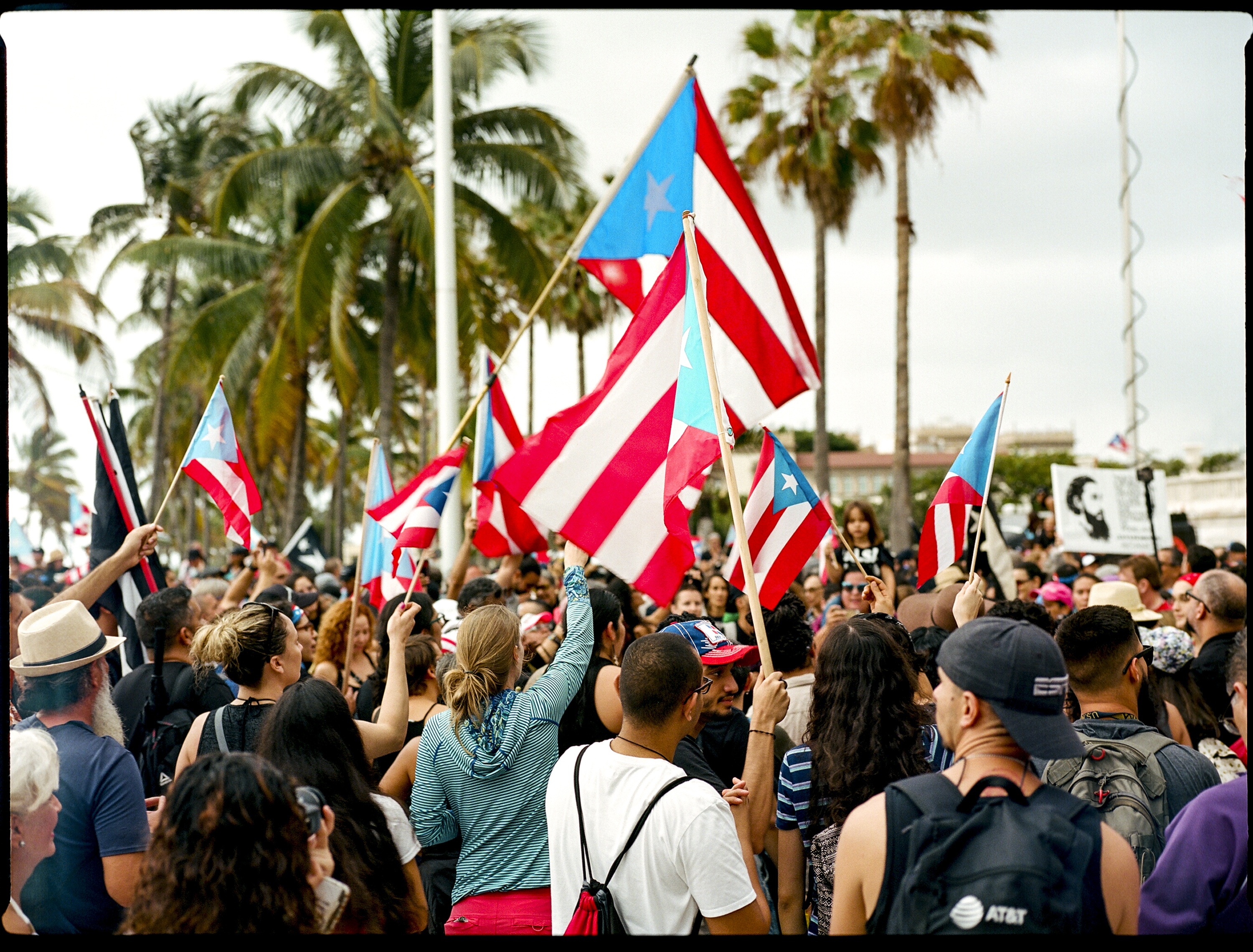
I know you’re there now but I also have a sense that you’ve led a nomadic life of sorts. What has that been like for you for the past nine years? Where have you been? Where do you frequently travel to?
Well, it's been exciting, but also a blur. The blur only came with the pause with COVID. Only in the last six, seven months, I've been in an existential crisis of, "What have I been doing? What am I chasing? Do I feel the happiest when I'm constantly on the move or do I want stability? Do I want this?"
My first internship was at Nylon, which was cool. I still learned a lot because their interns did everything — they really worked.
When I got to GQ, my boss was photo director Dora Somosi — she was my hero. I was blown away. I learned so much — how photo editors discuss work, how they assign work. It felt really exciting to be a part of those meetings, even though I never said anything.
My first internship was at Nylon, which was cool. I still learned a lot because their interns did everything — they really worked.
When I got to GQ, my boss was photo director Dora Somosi — she was my hero. I was blown away. I learned so much — how photo editors discuss work, how they assign work. It felt really exciting to be a part of those meetings, even though I never said anything.
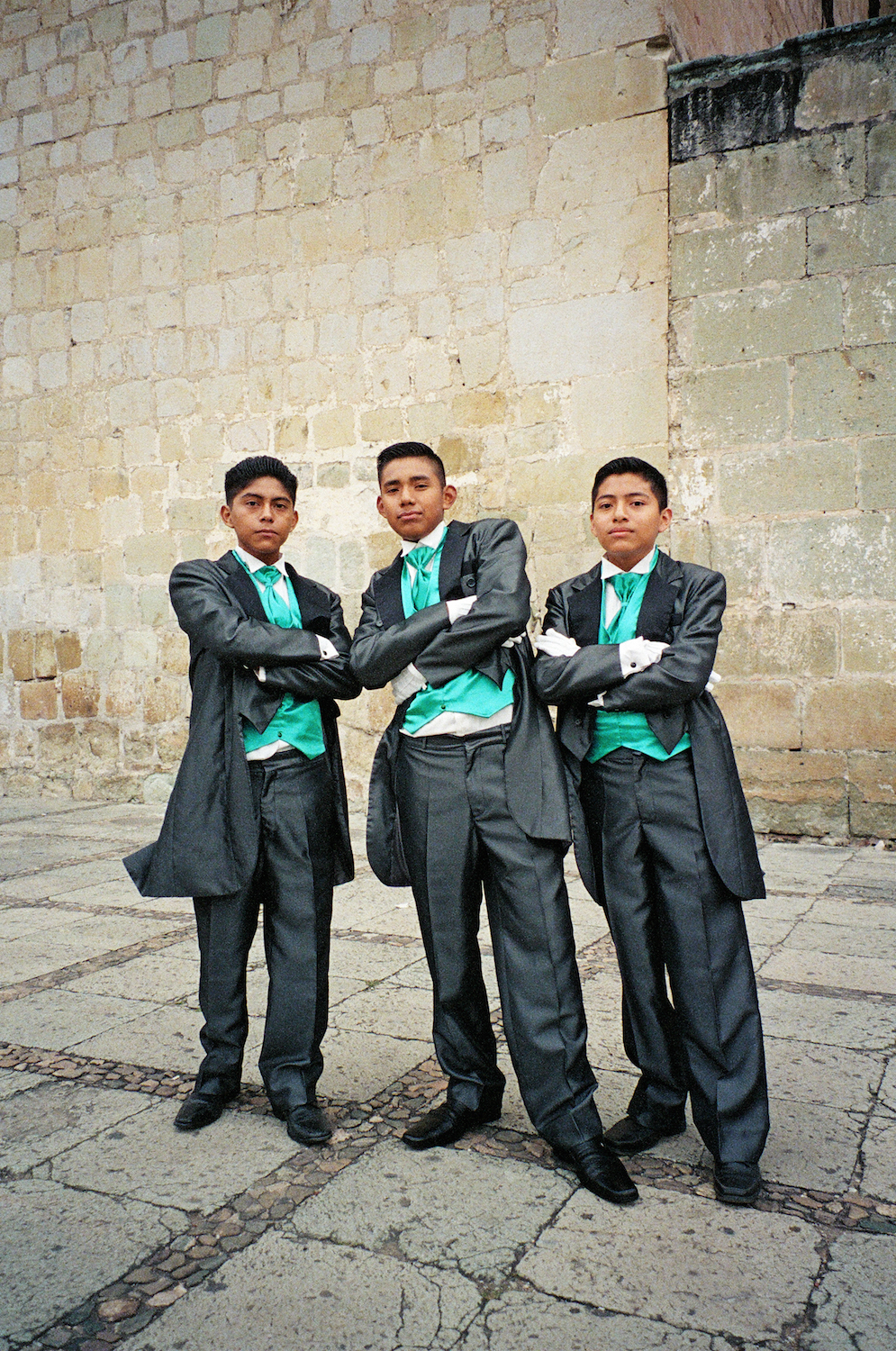
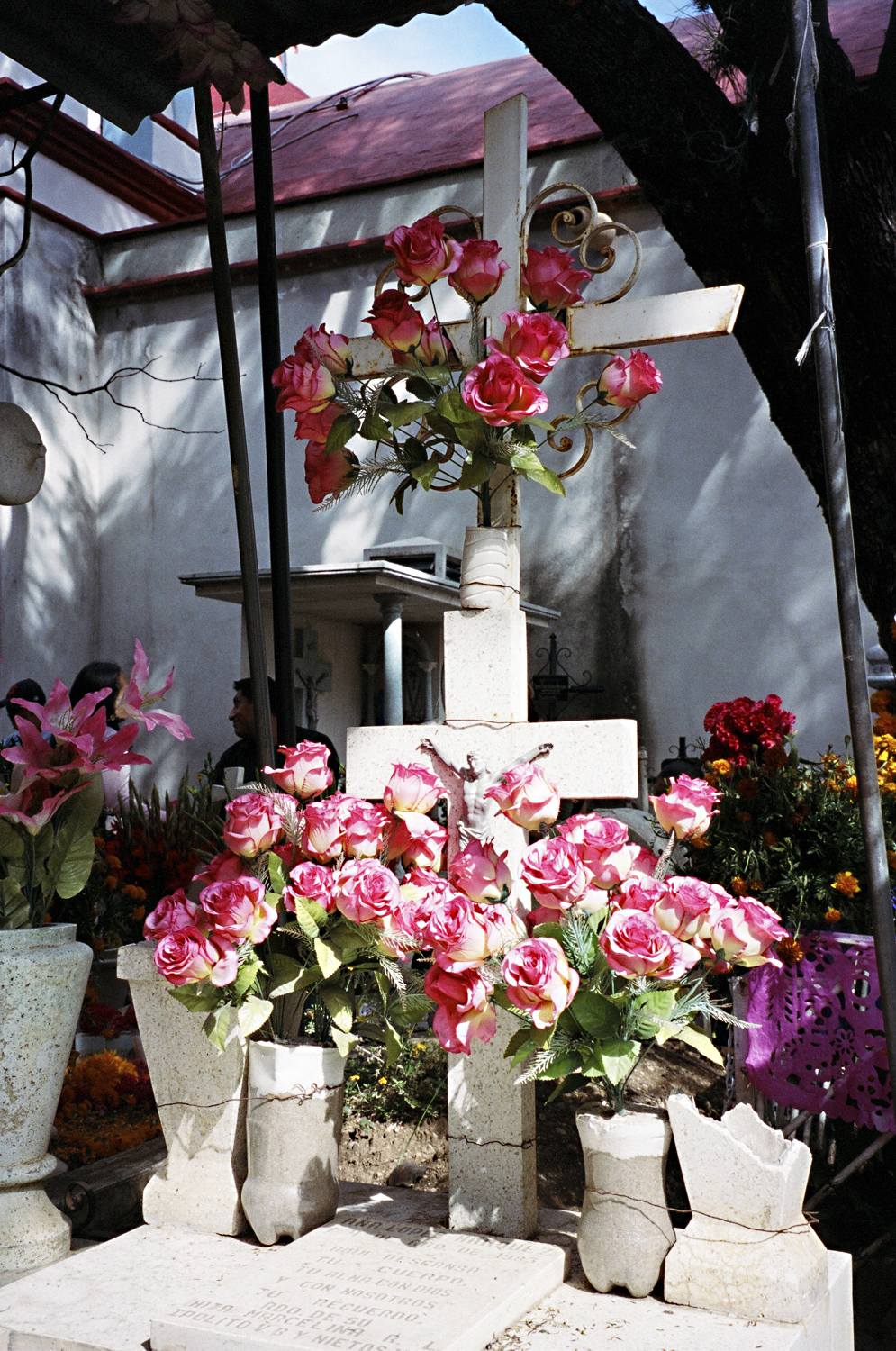
You’ve said you always knew you wanted to be a photographer. I wondered if you could talk about how that knowledge came to be, and coming from a Puerto Rican family, where you saw photography, or were introduced to it?
It came late in life. To be fair, my mom was and is very artistic. That's why we moved to Rochester, so she could go to the Rochester Institute of Technology — where, ironically, I went to school for photography. She went for graphic design. I grew up with my mom going to craft art shows.
I always remember tangible photographs, and I love those. Now, looking back on them, I realize, “Oh, my mom had an artistic eye, maybe it was somehow in there." All my basis for art was my mom. Up until last year, I never met my biological dad. My stepdad passed away five years ago.
I went to the University of Buffalo for a year and was taking basic foundation classes. I had a boyfriend at the time who went to RIT. This was during the MySpace days, and these two girls from RIT’s advertising photography program contacted me. They have a yearly project where they have to do a simulated campaign shoot. Because Rochester isn’t in New York City, RIT students always struggle to find models.
There was a weird “aha!” moment when I was in the studio with them and saw all this equipment — the facilities blew my mind. I was like, "What major is this?" They told me they were photography majors, and I knew immediately, "I'm going to go for that."
My first day of school was setting up a four-by-five camera. As a transfer student, they gave me no direction. I got a packet that said, "You go to RIT now." I showed up. The kids who went there, they took photography at specialized high schools before and were a little pretentious. Most of them don't do photography now. It's ironic.
I always remember tangible photographs, and I love those. Now, looking back on them, I realize, “Oh, my mom had an artistic eye, maybe it was somehow in there." All my basis for art was my mom. Up until last year, I never met my biological dad. My stepdad passed away five years ago.
I went to the University of Buffalo for a year and was taking basic foundation classes. I had a boyfriend at the time who went to RIT. This was during the MySpace days, and these two girls from RIT’s advertising photography program contacted me. They have a yearly project where they have to do a simulated campaign shoot. Because Rochester isn’t in New York City, RIT students always struggle to find models.
There was a weird “aha!” moment when I was in the studio with them and saw all this equipment — the facilities blew my mind. I was like, "What major is this?" They told me they were photography majors, and I knew immediately, "I'm going to go for that."
My first day of school was setting up a four-by-five camera. As a transfer student, they gave me no direction. I got a packet that said, "You go to RIT now." I showed up. The kids who went there, they took photography at specialized high schools before and were a little pretentious. Most of them don't do photography now. It's ironic.
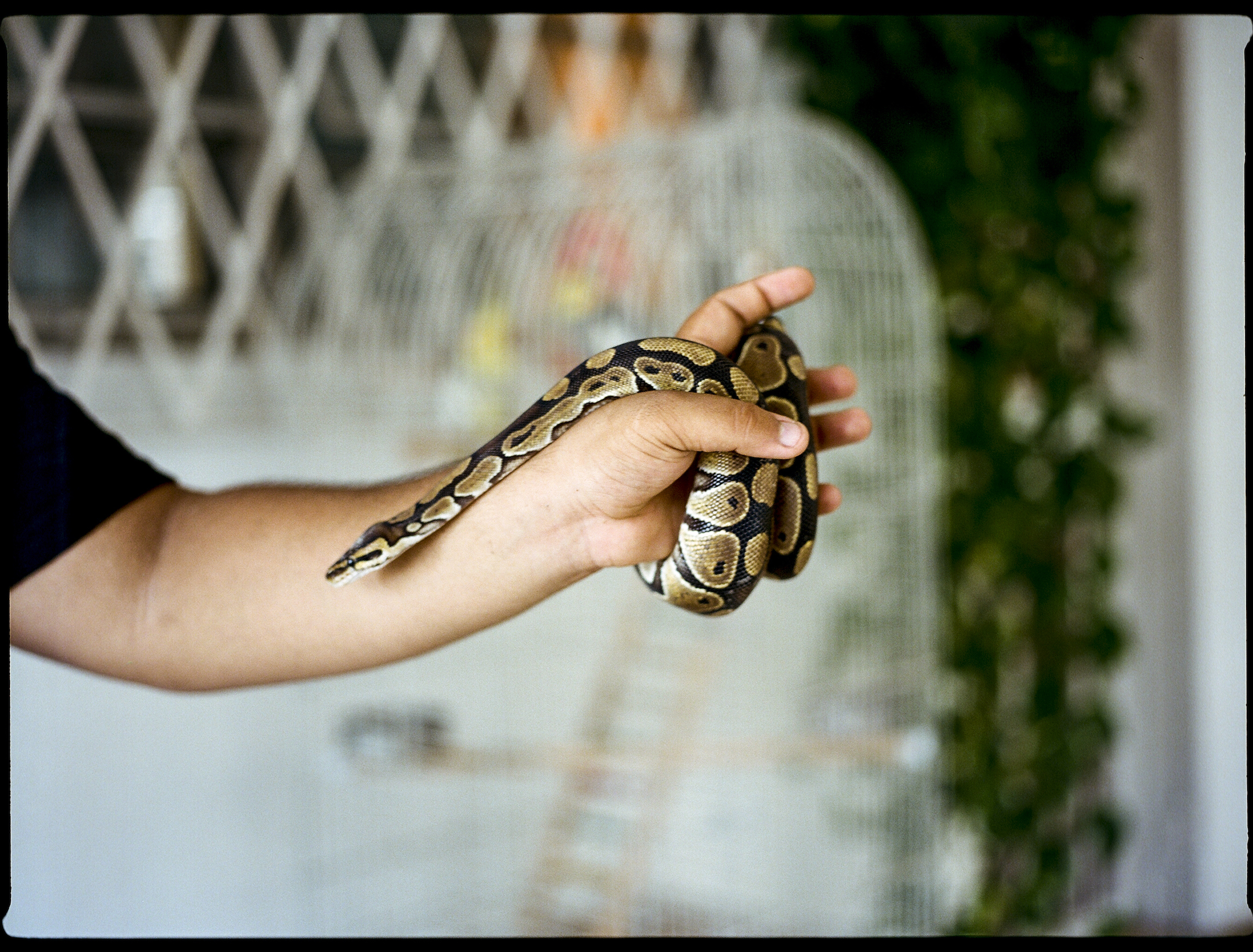
When you were looking at work during your time in college and GQ, those were all mostly white photographers, right?
GQ was Mark Seliger, Peggy Sirota — they were all white.
Did you ever think, “I want to bring my own perspective to photography"?
Now that you ask me that, I don’t think so. This is a bigger conversation, but I've always had an identity crisis with not being Puerto Rican enough, and then also being really white. Sounding very American and purposely wanting to sound like that to be taken seriously. I didn't grow up with an accent, but I definitely grew up speaking Spanish — but that went away. Everyone in my family sounded and looked different. Seeing that reaction to them left an impression on me, "You need to sound grammatically correct and proper to be taken seriously." Maybe deep down, I always felt more white than Spanish.
In those moments, I didn't really put it together. Only in hindsight, especially last year, I started to realize everyone I met in the editorial world was white. It hit me now — I think I was trying to adapt and be included.
In those moments, I didn't really put it together. Only in hindsight, especially last year, I started to realize everyone I met in the editorial world was white. It hit me now — I think I was trying to adapt and be included.
Did you still feel connected to your Puerto Rican heritage when you were moving all over the world in these spaces? Or is it something where you feel like this identity where you're able to thrive wherever you go?
I would say the latter, what you said. Again, only now can I recognize this in hindsight. I've been trying to find myself and understand myself through seeing other places — I felt like I was adapting and that I had no connection with Puerto Rico. That made me feel really guilty.
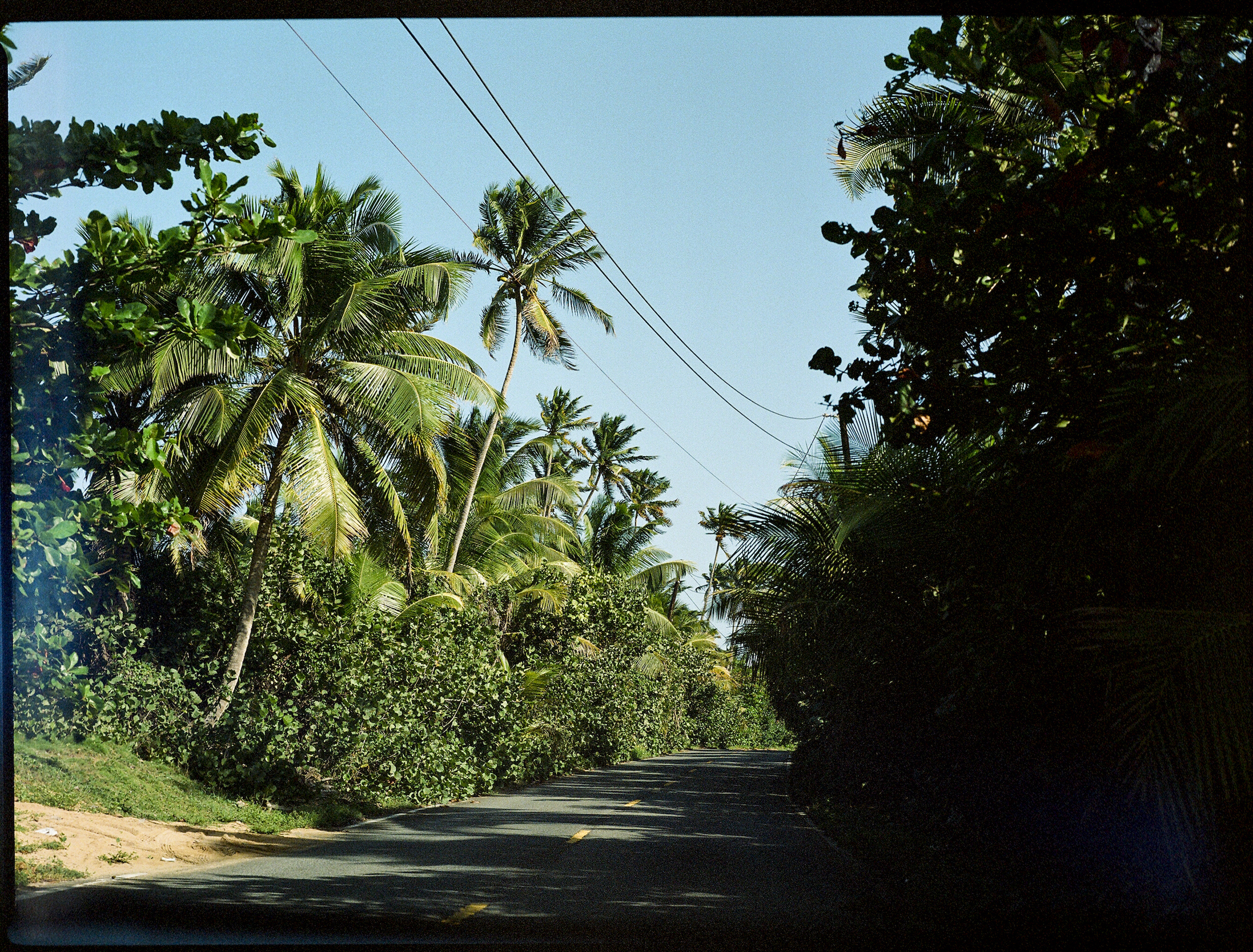
You're not alone. So much of what you said resonated for me because of being in school and a lot of conditioning, I can speak Spanish, but when I respond to my parents, it's in English. I’ve accepted that this is not by accident — that in order to assimilate in the spaces I was in, I wasn't really encouraged to speak Spanish, because I was also surrounded by white people. Who am I going to speak Spanish to? [laughs].
When I started visiting Mexico in 2017, I felt like I was home. To be fair, I've never been to another Spanish-speaking country. I went to Spain once for work in 2013, but that was some other shit. That’s when I started thinking about going to Puerto Rico, but it always felt so daunting because my mom never talked about living there.
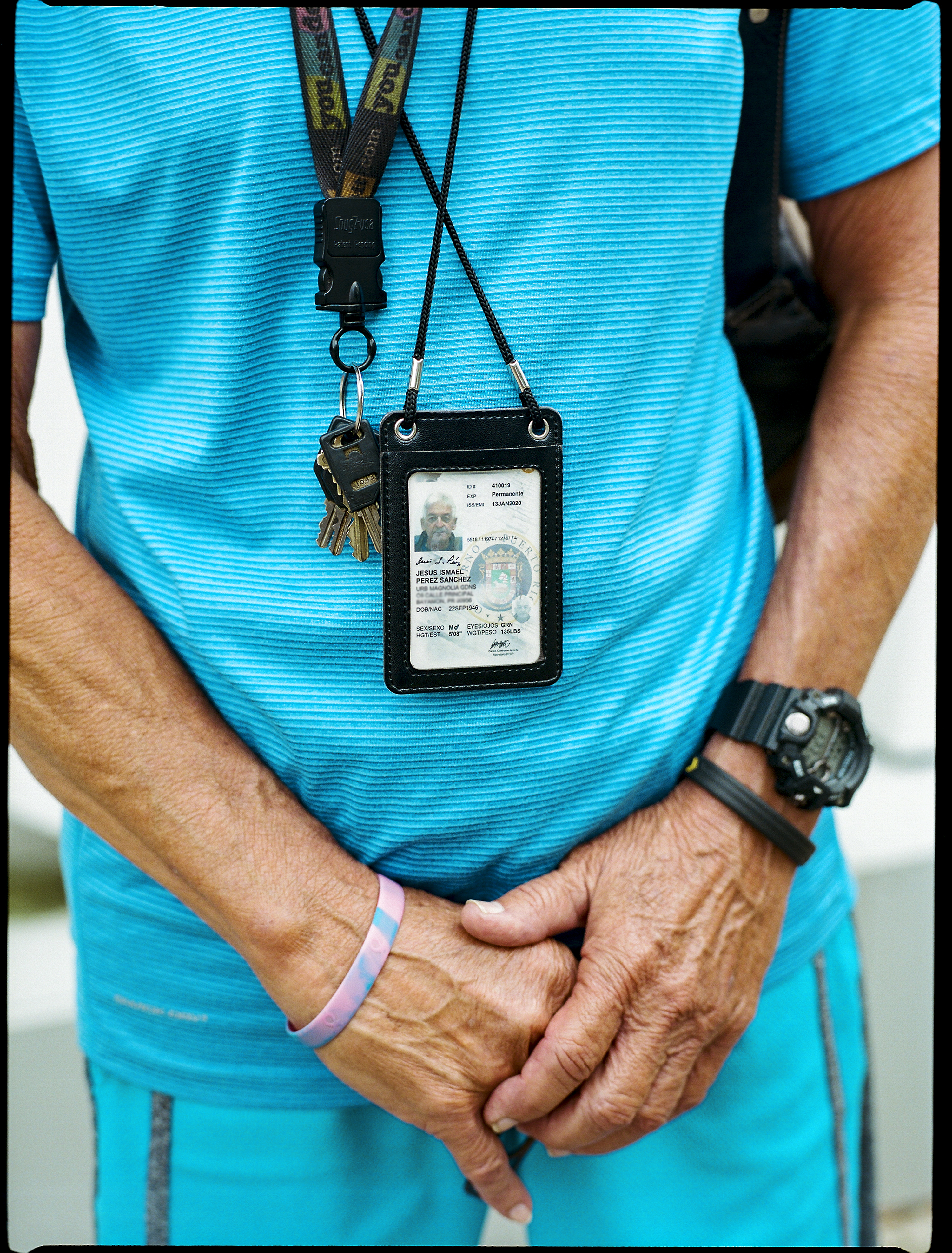
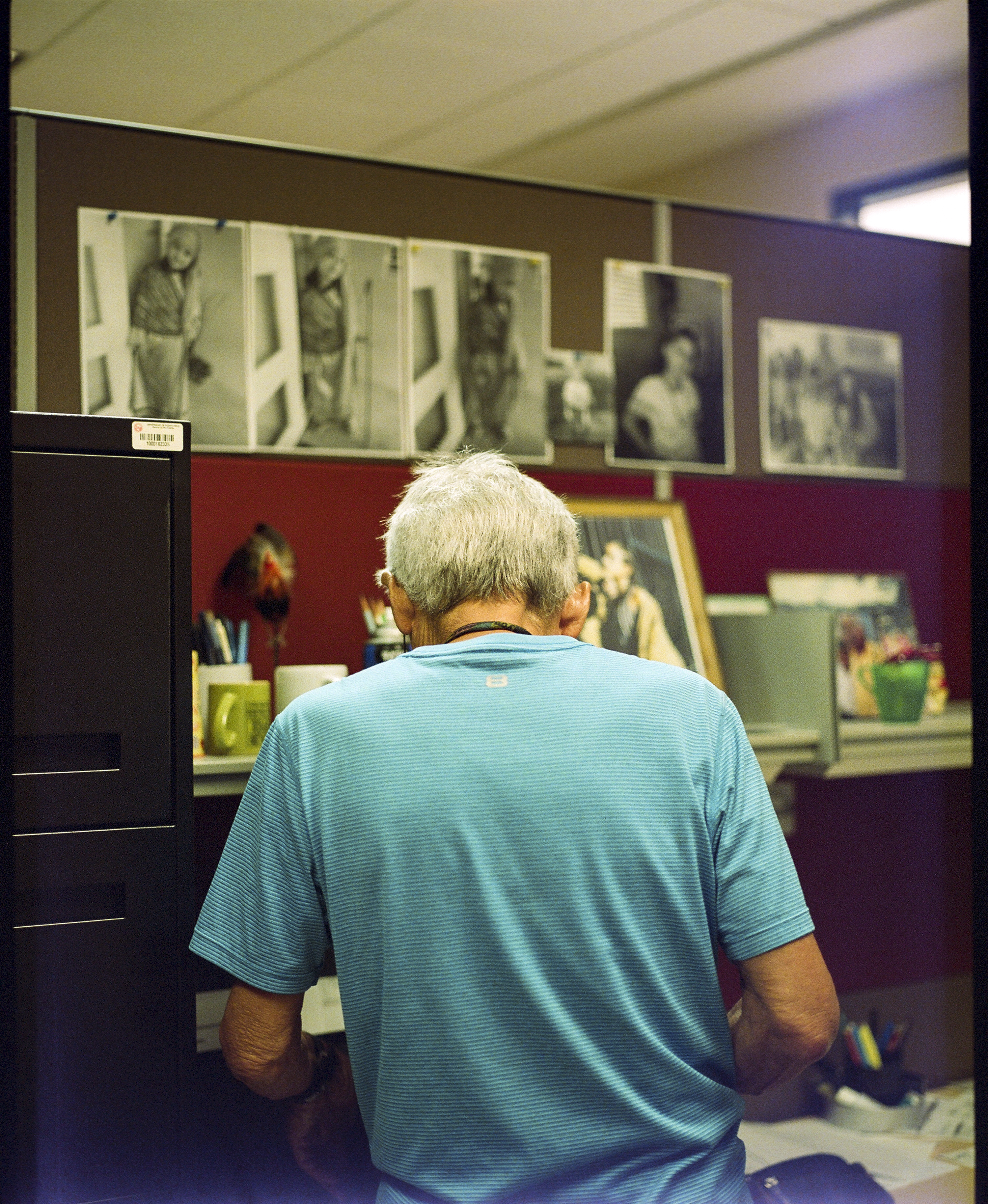
How was it photographing in Puerto Rico while also dealing with deeply personal family history?
I started emailing my biological father, who lives in Puerto Rico, after he emailed me out of nowhere in 2016. Every year, I was like, "He seems trustworthy, maybe I should go," but I kept pushing it off.
Then Hurricane Maria happened and I didn't hear from my dad for a while. I thought, "Man, if I don't do it now, who knows? My dad is 73."
My dad lives off the grid. He doesn't have a phone. He doesn't drive. He rides a bike and works at the University of Puerto Rico. When I got there, I didn’t even know if he was home. I knocked on the door — it was a typical little screen door. I saw some woman's feet. She came to the door and I started speaking in my half-assed Spanish.
I said, "Yo no se — la casa” (“I don’t know — the house”), and she immediately started to cry. I started to cry. I was like, "Oh my God, I'm at the house." Four seconds later, she said, "Mira quién está aquí!” (“Look who’s here!”), and my dad pulled up on his bike. He looked like he was going to have a heart attack.
I said, "It's me," and he was in shock. Then he came up and hugged me. That felt so weird to me — who's this older man, hugging me?
There wasn't enough time in those four weeks — four weeks went fast. Between staying with my dad, seeing aunts I haven't seen and cousins, and driving to the south for three hours with my friend, it was a blur. I really needed six months there. This was before COVID. I thought I’d be back in a few months and I'd stay for longer. That didn't really happen.
Then Hurricane Maria happened and I didn't hear from my dad for a while. I thought, "Man, if I don't do it now, who knows? My dad is 73."
My dad lives off the grid. He doesn't have a phone. He doesn't drive. He rides a bike and works at the University of Puerto Rico. When I got there, I didn’t even know if he was home. I knocked on the door — it was a typical little screen door. I saw some woman's feet. She came to the door and I started speaking in my half-assed Spanish.
I said, "Yo no se — la casa” (“I don’t know — the house”), and she immediately started to cry. I started to cry. I was like, "Oh my God, I'm at the house." Four seconds later, she said, "Mira quién está aquí!” (“Look who’s here!”), and my dad pulled up on his bike. He looked like he was going to have a heart attack.
I said, "It's me," and he was in shock. Then he came up and hugged me. That felt so weird to me — who's this older man, hugging me?
There wasn't enough time in those four weeks — four weeks went fast. Between staying with my dad, seeing aunts I haven't seen and cousins, and driving to the south for three hours with my friend, it was a blur. I really needed six months there. This was before COVID. I thought I’d be back in a few months and I'd stay for longer. That didn't really happen.
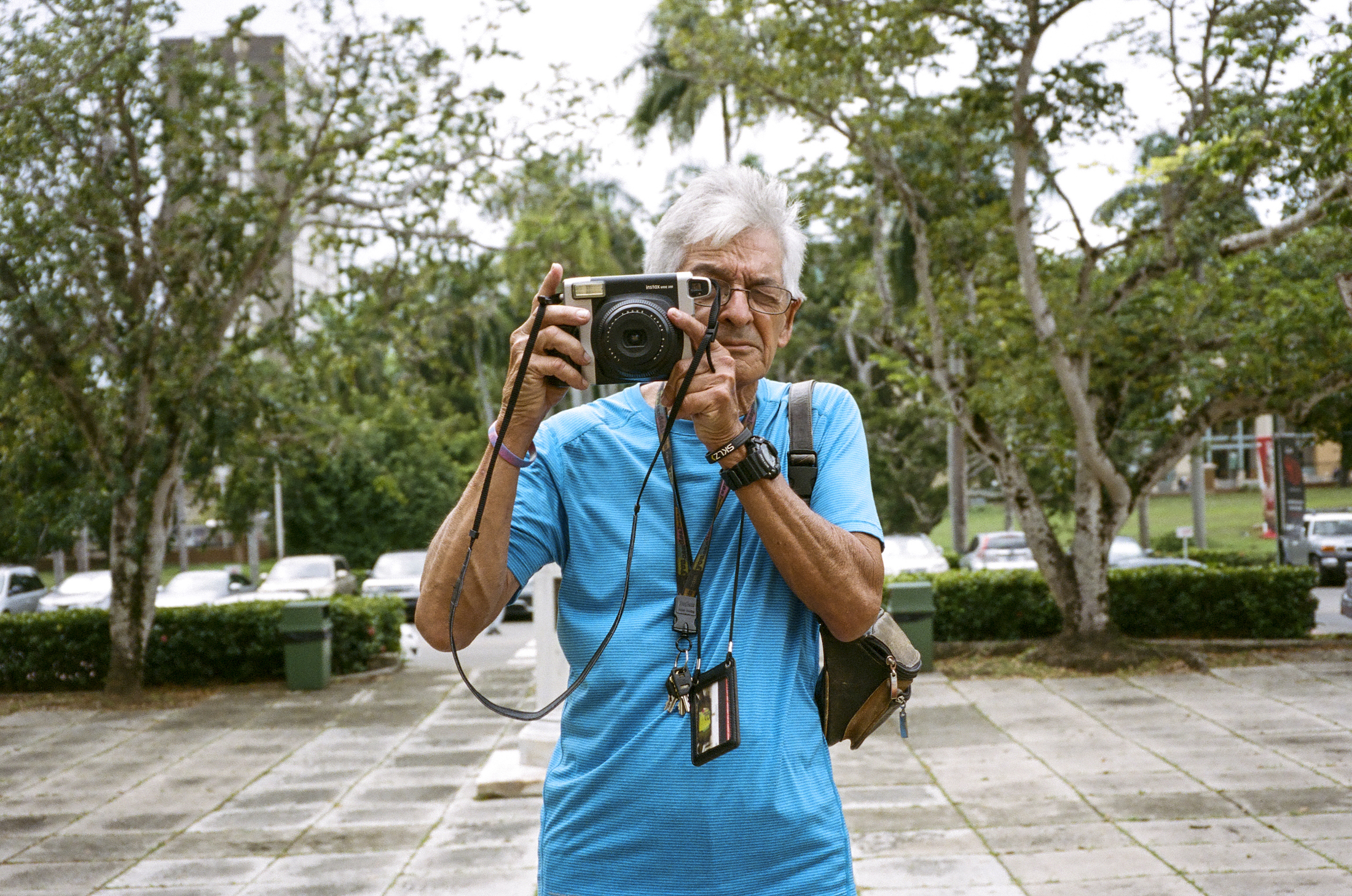
You described it as a blur. When you look through photos that you took during that time, does it become clearer? Do you notice what you were drawn to or how did photography help you?
Photography for me, it's like armor, it helps me disassociate.
I'm a very stimulated person, visually. I’m constantly scanning — ”there's a picture, there's a picture, there's a picture.” When we would drive through these abandoned areas, I was stunned. "Whoa, we drove past six pictures of blown-out windows or a destroyed house.” Then I would have to remember this used to be someone's home.
I'm a very stimulated person, visually. I’m constantly scanning — ”there's a picture, there's a picture, there's a picture.” When we would drive through these abandoned areas, I was stunned. "Whoa, we drove past six pictures of blown-out windows or a destroyed house.” Then I would have to remember this used to be someone's home.
Much of your work is looking, observing other people's lives. Did you have your camera with you the day you met your dad?
I always have my Contax 35 millimeter on me. I wanted to take a picture of my dad, but it actually felt very awkward. I would bring up the camera and I couldn’t do it.
Before I met my dad, I'd always look at kids on the train with their dad — little girls hugging them and stuff like that — and I'd be very envious. I wanted to know what that was like. So when I had that moment, I had a wall up for the first week. Then it started to break, but, of course, we started getting close when it was time to go. The day I left is when I first heard about COVID. It was January 30.
Before I met my dad, I'd always look at kids on the train with their dad — little girls hugging them and stuff like that — and I'd be very envious. I wanted to know what that was like. So when I had that moment, I had a wall up for the first week. Then it started to break, but, of course, we started getting close when it was time to go. The day I left is when I first heard about COVID. It was January 30.
Oh my gosh.
I'm crying telling this story, I was trying to talk to avoid crying. I think I haven’t processed the moment of meeting my dad yet.
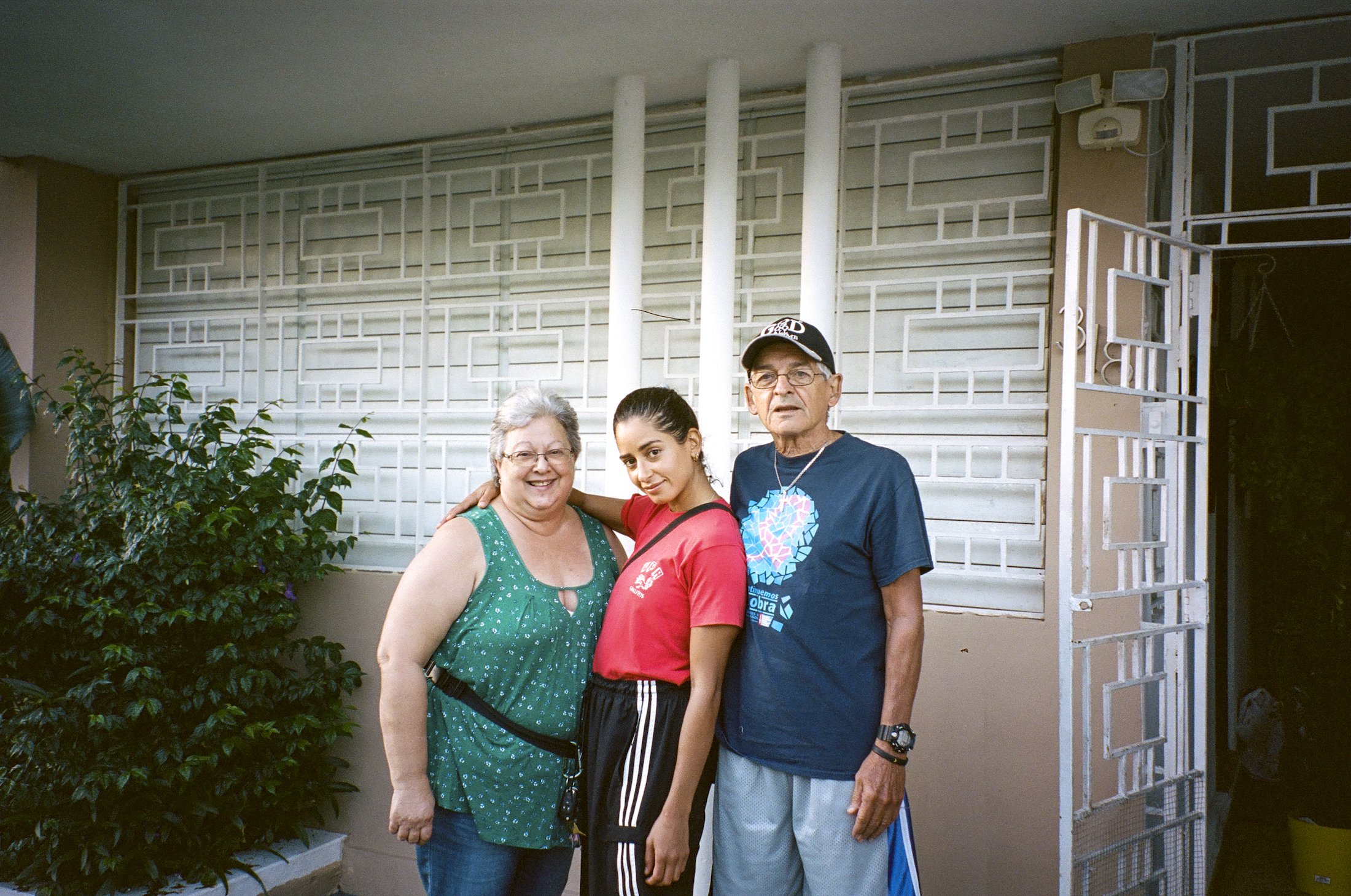
Hearing you talk about all of this, I’m feeling so emotional. I was going through the photo series of images of your father, but hearing you talk about the process of meeting him and how it all came together leaves me feeling there is so much more to photograph.
The hard part of showing the relationship with my father in a photo series is, do these photos show that I didn't know this person before I came? How do you demonstrate that? I'm still struggling with the photo series.
There was a class nearby and I said, "I want to do this jiu-jitsu at six." He asked if he could come watch me. In my head, I was so excited, like a little kid. "Oh wow, my dad's going to see me do sports at 33!" He came, but I was very nervous he was going to leave — the whole time I was there, I kept looking at him in the corner. In my head, I was saying, "Please don't leave me. Please don't desert me."
It was funny because the people in the class kept asking "¿Es tu papa?" (“Is that your dad?”). I was like, "Well, I met him yesterday, but yes, it's my dad over there. I guess." It was cool because we could relate on one thing, the physicality. At the end, in the car ride home, he was so proud about it. He said, "Well, you're really good at this," and this and that. I never had that kind of coaching or encouragement before.
There’s a lot of things I still need to explore or ask about his life in general. Again, not possible in four weeks and going to the south of the island and photographing. I needed six months there.
There was a class nearby and I said, "I want to do this jiu-jitsu at six." He asked if he could come watch me. In my head, I was so excited, like a little kid. "Oh wow, my dad's going to see me do sports at 33!" He came, but I was very nervous he was going to leave — the whole time I was there, I kept looking at him in the corner. In my head, I was saying, "Please don't leave me. Please don't desert me."
It was funny because the people in the class kept asking "¿Es tu papa?" (“Is that your dad?”). I was like, "Well, I met him yesterday, but yes, it's my dad over there. I guess." It was cool because we could relate on one thing, the physicality. At the end, in the car ride home, he was so proud about it. He said, "Well, you're really good at this," and this and that. I never had that kind of coaching or encouragement before.
There’s a lot of things I still need to explore or ask about his life in general. Again, not possible in four weeks and going to the south of the island and photographing. I needed six months there.
What was your father’s reaction when you were taking pictures of him? What was the dynamic like once you introduced the camera and you told him that you are a photographer?
He did well with it. He was ready for it. He knew at that point what I could do — for four years, I would send my website or work. I think he was excited. Sometimes, I'd give him my camera, and I was like, "Take one of me," and it was nice.
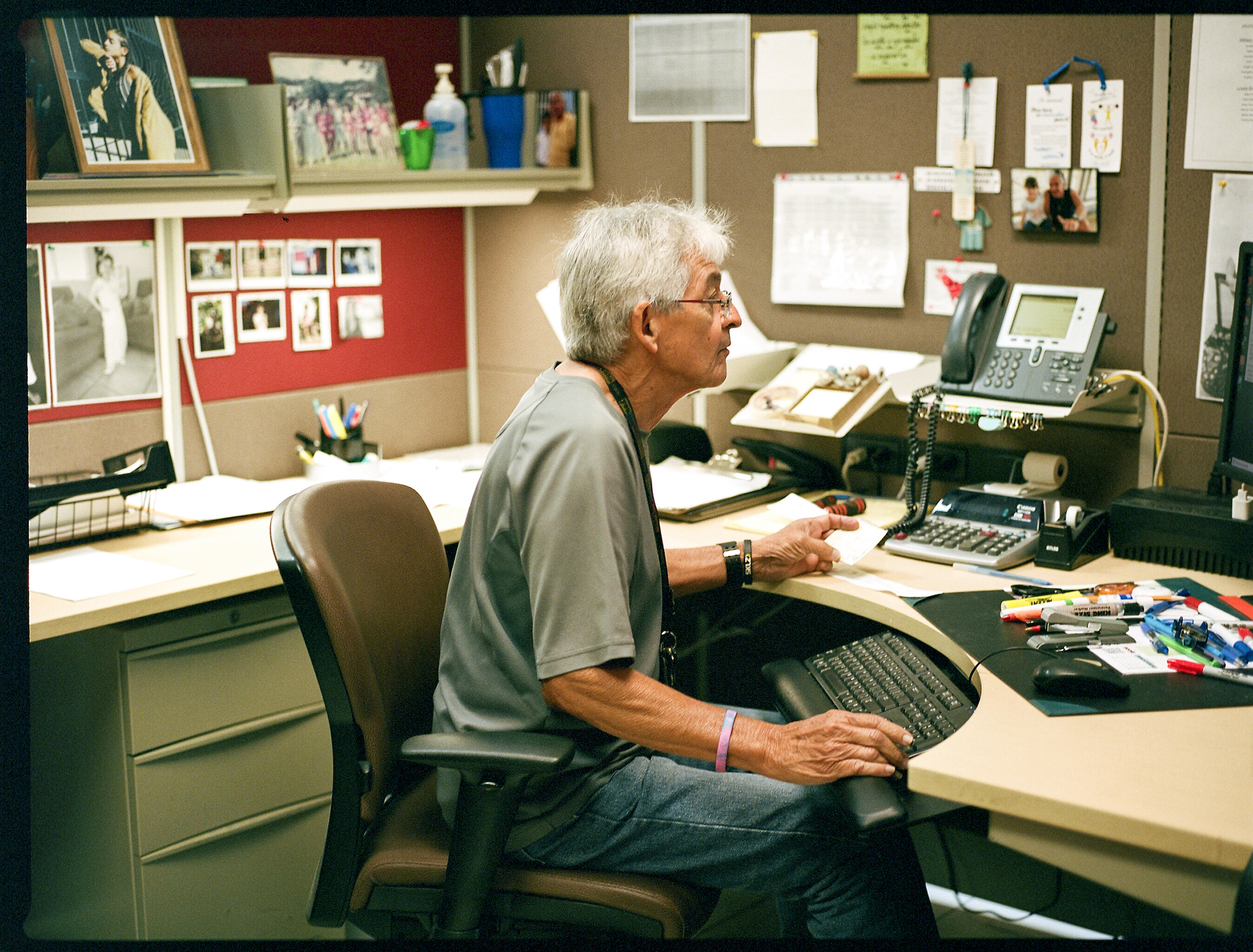
Thank you for being open and for sharing all that.
I'm a very nostalgic person. I hate to say it, but I have a very difficult time not living in the past or thinking about all the times, all these moments we didn't have. It's hard to meet someone already old and envision what he would have been like if he was my dad. I liked him. I think it would have been better if it was a negative experience, and he was an asshole. But he was — I wouldn't say cool — but we had very similar personality traits that blew my mind from not living with this person. “We have the same temper. We have the same this, we have the same —"
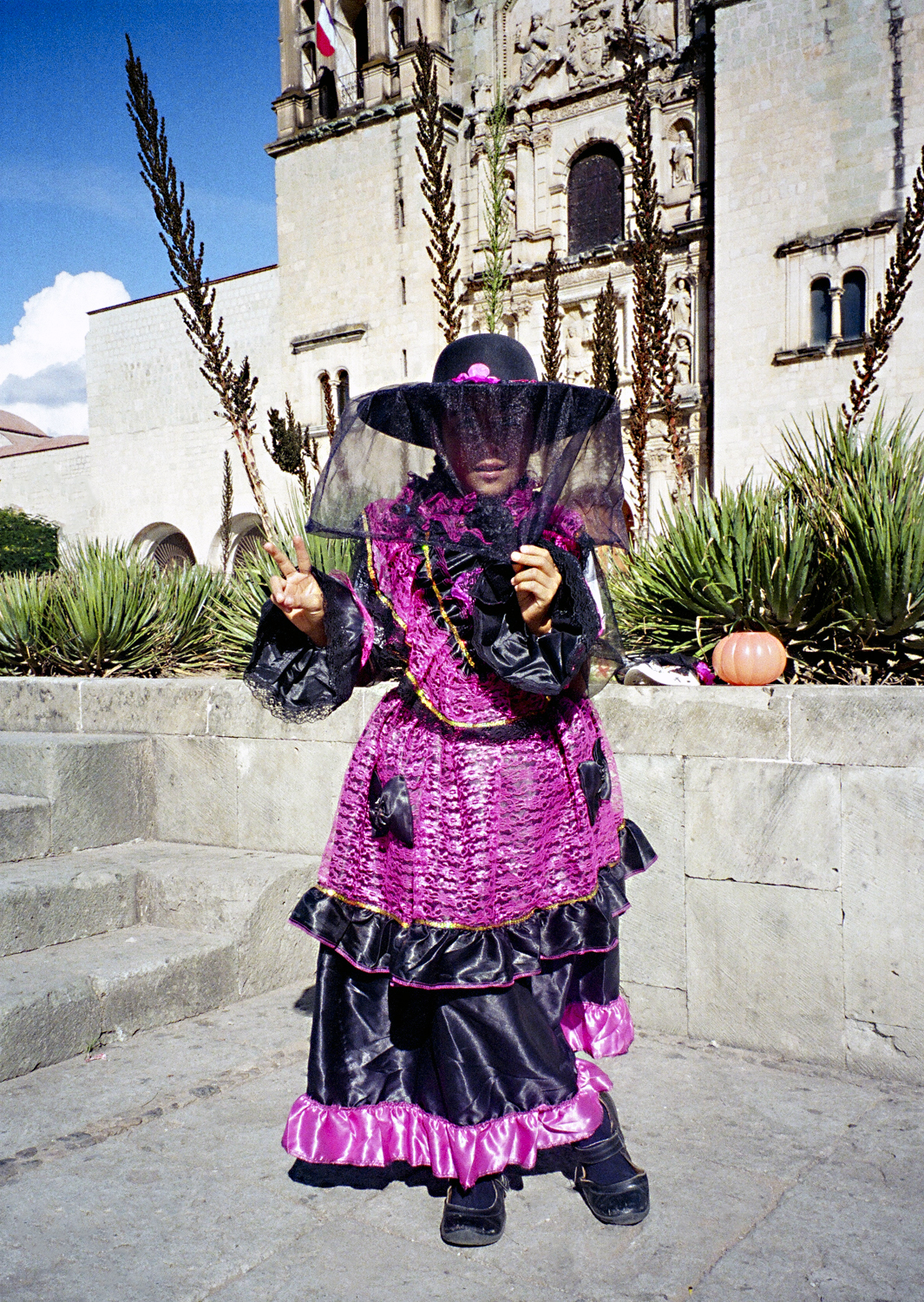
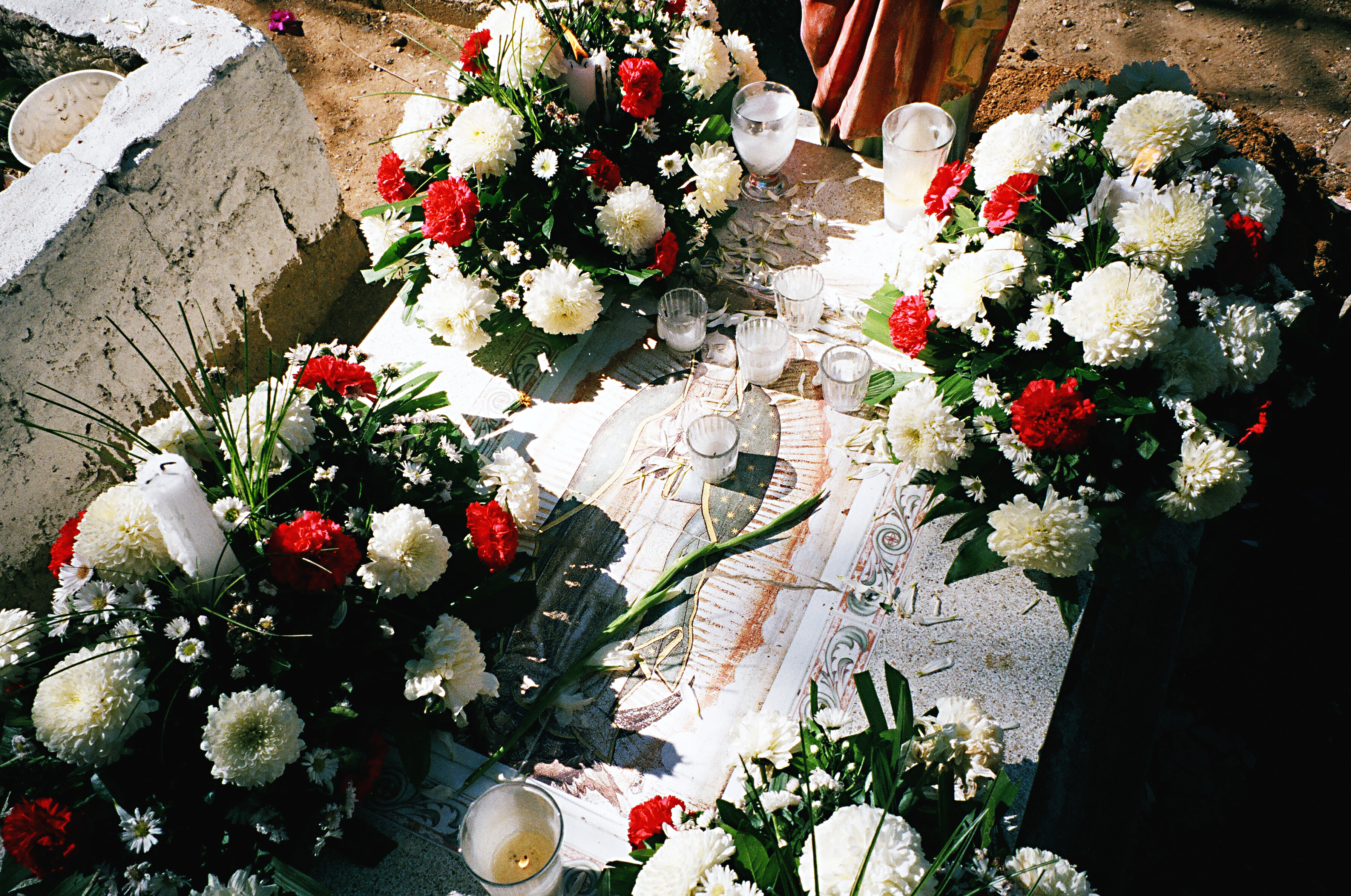
It’s interesting how you brought up nostalgia because, for me, I'm always in the past. Maybe that’s why I am so drawn to photography and portraiture and family photos.
I was looking at your work and wondering, how is it that you approach photographing people? Is there a specific way that you approach people or a reason why you like taking portraits?
I was looking at your work and wondering, how is it that you approach photographing people? Is there a specific way that you approach people or a reason why you like taking portraits?
It's not one thing. I like taking pictures of the moments that happen in between. I like being a fly on the wall, I think that's another part of my disassociating thing but I definitely direct, and see the value of directing things.
"What am I doing with my photography? Am I evolving? Am I challenging myself? Is the portraiture getting better?" Yes, I'm in that world right now. I want to get better. I'm starting to lessen that anxiety of the comparing my work to things on Instagram, which is fucking impossible.
"What am I doing with my photography? Am I evolving? Am I challenging myself? Is the portraiture getting better?" Yes, I'm in that world right now. I want to get better. I'm starting to lessen that anxiety of the comparing my work to things on Instagram, which is fucking impossible.